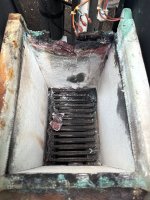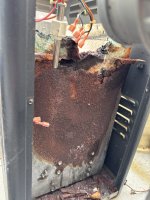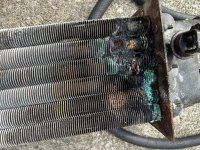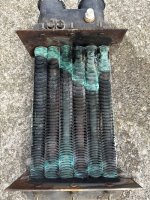



This is a Raypack 106 (just over 4 years old). Rollout switch opened a few times in the past year (think I see why). Then, yesterday the flow switch failed. When I opened the back of the heater to confirm I saw the entire back was rusted out. I decided to remove the heat exchanger to clean everything up, since I was going to replace the switch and it just got worse.
The first photo of the heat exchanger is the bottom, second picture is the top. On the bottom the fins are basically gone in a small section.
Should we just replace the heater at this point or is it ok that the refractory brick has deteriorated in the back, and try to go for another year?
What would cause this to happen? Small leak?
Full disclosure, we run the heater year round in freezing temps, because we use our small pool like a hot tub. So, technically this 8 seasons of use I guess. Wondering if a small leak caused the moisture? Or is it condensation? Water temp is always in the 80s.

